The History of Prince Titi, observes Mr. Croker, "was said to be the autobiography of Frederick Prince of Wales, but was probably written by Ralph his secretary." A more absurd note never was penned. The History of Prince Titi, to which Mr. Croker refers, whether written by Prince Frederick or by Ralph, was certainly never published. If Mr. Croker had taken the trouble to read with attention that very passage in Park's Royal and Noble Authors which he cites as his authority, he would have seen that the manuscript was given up to the Government. Even if this memoir had been printed, it is not very likely to find its way into a French lady's bookcase. And would any man in his senses speak contemptuously of a French lady, for having in her possession an English work, so curious and interesting as a Life of Prince Frederick, whether written by himself or by a confidential secretary, must have been? The history at which Johnson laughed was a very proper companion to the Bibliotheque des Fees, a fairy tale about good Prince Titi and naughty Prince Violent. Mr. Croker may find it in the Magasin des Enfans, the first French book which the little girls of England read to their governesses.
Mr. Croker states that Mr. Henry Bate, who afterwards assumed the name of Dudley, was proprietor of the Morning Herald, and fought a duel with George Robinson Stoney, in consequence of some attacks on Lady Strathmore which appeared in that paper. [v.
196.] Now Mr. Bate was then connected, not with the Morning Herald, but with the Morning Post; and the dispute took place before the Morning Herald was in existence. The duel was fought in January 1777. The Chronicle of the Annual Register for that year contains an account of the transaction, and distinctly states that Mr. Bate was editor of the Morning Post. The Morning Herald, as any person may see by looking at any number of it, was not established till some years after this affair. For this blunder there is, we must acknowledge some excuse; for it certainly seems almost incredible to a person living in our time that any human being should ever have stooped to fight with a writer in the Morning Post.
"James de Duglas," says Mr. Croker, "was requested by King Robert Bruce, in his last hours, to repair, with his heart, to Jerusalem, and humbly to deposit it at the sepulchre of our Lord, which he did in 1329." [Vol. iv. 29.] Now, it is well known that he did no such thing, and for a very sufficient reason, because he was killed by the way. Nor was it in 1329 that he set out.
Robert Bruce died in 1329, and the expedition of Douglas took place in the following year, "Quand le printemps vint et la saison," says Froissart, in June 1330, says Lord Hailes, whom Mr. Croker cites as the authority for his statement.
Mr, Croker tells us that the great Marquis of Montrose was beheaded at Edinburgh in 1650. [ii. 526.] There is not a forward boy at any school in England who does not know that the marquis was hanged. The account of the execution is one of the finest passages in Lord Clarendon's History. We can scarcely suppose that Mr. Croker has never read that passage; and yet we can scarcely suppose that any person who has ever perused so noble and pathetic a story can have utterly forgotten all its most striking circumstances.
"Lord Townshend," says Mr. Croker, "was not Secretary of State till 1720." [iii. 52.] Can Mr. Croker possibly be ignorant that Lord Townshend was made Secretary of State at the Accession of George I. in 1714, that he continued to be Secretary of State till he was displaced by the intrigues of Sunderland and Stanhope at the close of 1716, and that he returned to the office of Secretary of State, not in 1720 but in 1721?
Mr. Croker, indeed, is generally unfortunate in his statements respecting the Townshend family. He tells us that Charles Townshend, the Chancellor of the Exchequer, was "nephew of the Prime Minister, and son of a peer who was Secretary of State, and leader of the House of Lords." [iii. 368.] Charles Townshend was not nephew, but grandnephew, of the Duke of Newcastle, not son, but grandson, of the Lord Townshend who was Secretary of State, and leader of the House of Lords.
"General Burgoyne surrendered at Saratoga," says Mr. Croker, "in March 1778." [iv. 222.] General Bourgoyne surrendered on the 17th of October 1777.
Nothing," says Mr. Croker, "can be more unfounded than the assertion that Byng fell a martyr to political party. By a strange coincidence of circumstances, it happened that there was a total change of administration between his condemnation and his death: so that one party presided at his trial, and another at his execution: there can be no stronger proof that he was not a political martyr." [i. 298.] Now what will our readers think of this writer, when we assure them that this statement, so confidently made, respecting events so notorious, is absolutely untrue? One and the same administration was in office when the court-martial on Byng commenced its sittings, through the whole trial, at the condemnation, and at the execution. In the month of November 1756, the Duke of Newcastle and Lord Hardwicke resigned; the Duke of Devonshire became First Lord of the Treasury, and Mr. Pitt, Secretary of State. This administration lasted till the month of April 1757. Byng's court-martial began to sit on the 28th of December 1756. He was shot on the 14th of March 1757.
There is something at once diverting and provoking in the cool and authoritative manner in which Mr. Croker makes these random assertions. We do not suspect him of intentionally falsifying history. But of this high literary misdemeanour we do without hesitation accuse him that he has no adequate sense of the obligation which a writer, who professes to relate facts, owes to the public. We accuse him of a negligence and an ignorance analogous to that crassa negligentia, and that crassa ignorantia, on which the law animadverts in magistrates and surgeons, even when malice and corruption are not imputed.















